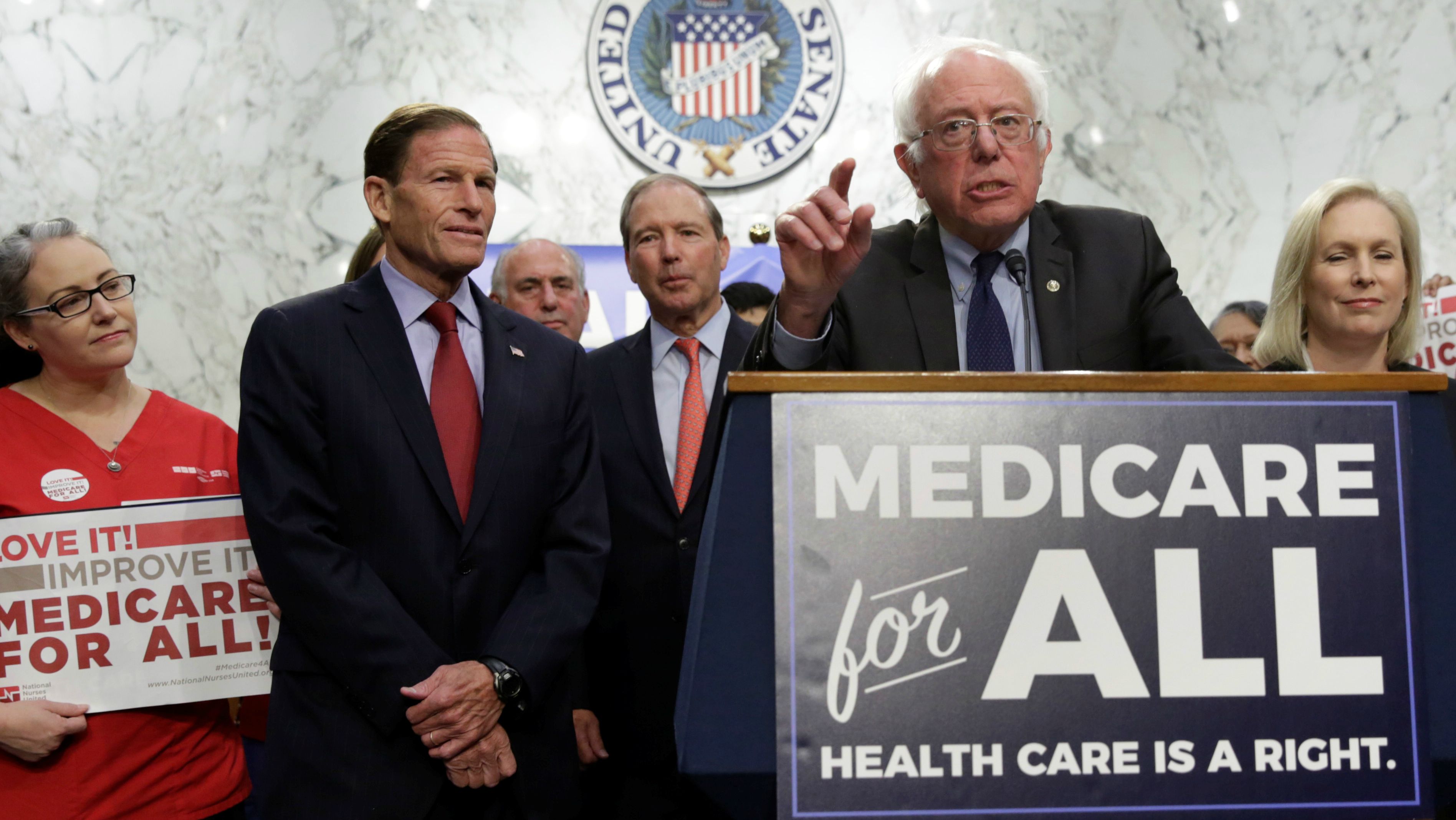If Bernie Sanders had marched stoically into the White House to assume the presidency, instead of Donald Trump, many things would have been different from the beginning.
Upon learning the election results, ecstatic college students might have partied with abandon, scared billionaires may have desperately attempted to safeguard their money away from Sanders’ privilege-stripping hands and the majority of the career politicians in Congress would have probably started pondering ways to get rid of him as soon as possible.
Sanders’ fiery campaign speeches and detailed plans for political reform left little doubt that if he were elected president, he would strive relentlessly — no doubt against fierce Congressional opposition — to promote the values of his ambitious political agenda, which promised with every word to change the country, even the whole world, for the better.
Death to the Status Quo
While it’s likely that a Sanders administration would be unable to establish everything in his radical political plan, he would definitely put up a fight to demolish the antiquated political status quo. Much of Sanders’ appeal lay in his populist pitches to young, working-class and minority voters, which implored them to join him in a “political revolution” against the elite benefactors of the existing political system.
Sanders sold himself as a representative for people who are sick and tired of the establishment. Regardless of the level of success Sanders may have achieved in his ground-breaking promises, he would have remained a champion of the people and not of politicians.
Free College Tuition
Realistically, providing free college tuition to all seems just a little too good to be true at the moment, but by this point in his term, Sanders certainly would have put together an action plan that promised to reduce copious amounts of student debt.
Sanders’ $75 billion plan, which he laid out on the campaign trail, to make college tuition free, involved imposing a tax on Wall Street speculators to finance student’s tuition at public colleges and universities while repurposing federal student loans in order to make tuition realistically affordable for students.
Battle Against Income Inequality
Imagine today if the gap between the rich and the poor was shrinking, not growing.
During his campaign, Sanders’ proposed strategy to fix income inequality in America was seen as shockingly aggressive, but when compromised by the other interests in Congress, his party and his administration, he could have still produced realistic changes to save the middle class.
Alongside his pledge to make public college tuition-free, Sanders also produced more grounded economic goals of breaking up the monopolistic banks and establishing a national $15 per hour minimum wage. By taxing the wealthiest Americas, Sanders believed that the additional revenue stream would ensure the resurgence of the middle class and could also be diverted into trade and globalization decisions.
Stripping Privileges of Billionaires
With the nation’s wealthiest elite no longer getting a free pass in the hypothetical administration, Sanders would work to closing corporate loopholes. He most likely would sponsor a bill that would issue a Wall Street transactions tax and would increase the taxing of corporations on corporate income stashed offshore.
Early in his campaign, Sanders’ income tax proposals began as vague promises to increase taxes on the rich but later developed into a proposal that would increase the tax rate for households with incomes over $10 million, to 52 percent. If he were president, he would almost certainly be laying siege upon the financial fortifications of the nation’s richest individuals.
Better Healthcare
If this Sanders’ universal health care plan was put into effect, the United States would have joined every other major industrialized nation in guaranteeing health care to all people.
“Medicare for All” would be a long-term, single-payer national health care system. Under this plan, everyone, theoretically, would receive better coverage. The United States could save up to $6 trillion over 10 years; the average middle-class family could save over $5,000 per year.

Climate Change
If Sanders had been elected, the United States undoubtedly wouldn’t be the only country in the world failing to be a part of the Paris Accord. The international agreement to fight climate change, and arguably the enduring legacy of the Obama administration, was significantly sidetracked when President Trump decided to pull the U.S. out of the deal, less than six months into his presidency.
With a Sanders administration in office, the United States could keep their environmental promise to the rest of the world and take a position of leadership with climate change.
Immigration
On the campaign trail, Sanders called for better treatment of immigrants and promised to protect the majority of undocumented immigrants. If it was Sanders entering his second year of office, not Trump, the outlook for most undocumented immigrants would arguably look a lot different.
It is important to note, however, that Sanders voted against the 2007 comprehensive immigration reform bill that would have expanded the number of guest workers in the United States, choosing instead to remain loyal to American workers and unions.
Foreign Leadership
The hypothetical Sanders presidency would probably inspire more confidence among American citizens in times of international conflict, relative to the volatility and inexperience shown by the Trump administration. While foreign policy may not be Sanders’ strongest field, as an experienced politician he would likely rely on advice from established diplomatic professionals.
Meanwhile, citizens could feel less like the world might be about to end each time the current president writes a new Tweet or answers a phone call from a foreign leader.
Why would Kim Jong-un insult me by calling me "old," when I would NEVER call him "short and fat?" Oh well, I try so hard to be his friend – and maybe someday that will happen!
— Donald J. Trump (@realDonaldTrump) November 12, 2017
Integrity Would Still Stand
One of the things about Sanders that rendered him an unusual, but the appealing presidential candidate was his authenticity. Unlike many politicians, Sanders is every bit the man he presents himself to be.
With a genuine leader in office, the U.S. might have re-assumed a position of respected international standing with strong allies, renewed trade opportunities and a respected diplomatic corps. President Sanders would have done his best to catch the nation up to the rest of the developed world and reestablish the United States as a respected leader.

















